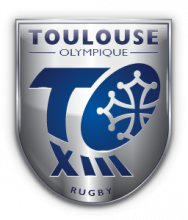Regularly, find on Toulouse Olympique RL website Samuel JACKSON’s chronicles, young subject of Her Majesty expatriated in the Southwest of France, who shares his passion for rugby league. Here is the second article of his chronicles.

Hello, my name’s Samuel Jackson and I am a student from England, currently living in Pau. As a passionate rugby league supporter since my childhood, I follow the game very closely, with a particular interest in the international side of things. From now on I will be writing articles bringing you the latest news from the Super League and other UK competitions. I hope you enjoy them. Sam
For the second edition of his column, Samuel speaks about the League One, the third professionnal level in England where Toulouse Olympique will play next season.
The League One
With the official confirmation of Toulouse’s application to join Kingstone Press League One for the 2016 season, it seems a good time to focus on the successes of the third tier of British rugby league and the trials it faces. Below the Super League and the Championship, League One is the third rung of the professional game and is run by the RFL. It has been in near constant flux for the past decade, its structure changing almost year-on-year. Currently, it comprises 14 teams from all over England and Wales and is a target for expansion clubs.
Over the past 5 seasons, 6 new clubs from outside the game’s traditional strongholds have been added to the competition. While this has been a great effort to increase the geographical footprint of the sport, it has created issues for the league. The inclusion of two Welsh clubs (both raised from the ashes of the former Crusaders franchise) and, more recently, 4 teams from the South and Midlands, have helped introduce new areas to high-level rugby league. However, it has also served to create almost a “two-speed” competition. A quick glance at the table reveals that the bottom 6 teams are all recent additions and has led to calls to regionalise the league.
There are however two teams showing that expansion clubs can perform well at this level, North Wales Crusaders and Newcastle Thunder, both from outside the game’s M62 heartlands. The Crusaders were unlucky to be relegated from the Championship last year and the Thunder are making a serious bid for promotion under new financial backing. There are two distinct differences between these two and other expansion clubs though: they both emerged from a local Super League club and they are both close to current Super League clubs and thus gain greatly from dual registration arrangements. Because of the short-notice of this loan system, teams like South Wales and Gloucester can’t call on these full-time players to turn out for them on the weekends, as it is simply too far for those players to travel. Furthermore, the long distance between these clubs and the heartlands of rugby league means that there is simply not the same reservoir of players from a strong local amateur and professional scene for them to dip into.
However, this is kind of the point. This should encourage the clubs to invest in the local amateur and junior game to help form a squad that can take them to the higher echelons of the sport. In doing so, they would increase the reaches of rugby league. And the expansion isn’t set to stop there: as well as the potential move into France next year, there is also a Canadian bid on the table. This leftfield idea is said to be fully-financed so that the English clubs needn’t pay to travel and, though it may seem crazy, this could see the tournament become the most geographically diverse semi-pro league in the world!
The good news for TO XIII is that there is a precedent for a team reaching the top of the sport from this level. In 2006, Celtic Crusaders used it as a launching point for their time in Super League, finishing 3rd first time round and subsequently winning what was then National League 2. With two teams to be promoted each season, hopefully Toulouse don’t need to wait at all!




